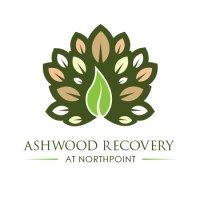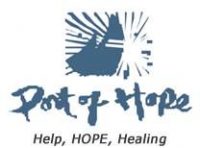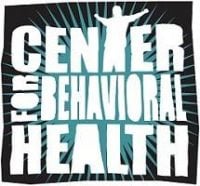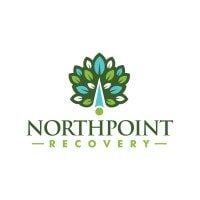Changing Behaviors
Drug Rehab Center in Caldwell, Idaho
- Mental Health
Changing Behaviors in Caldwell, Idaho is a treatment facility offering comprehensive care for addiction and mental health issues, including counseling services, medication management, evidence-based therapies, and aftercare support.
About Changing Behaviors in Idaho
Changing Behaviors in Caldwell, Idaho is a comprehensive treatment facility for individuals suffering from various addictions, mental health, and substance abuse issues. The facility provides aftercare support, intensive, and outpatient levels of care for those seeking an integrated and holistic approach to addiction recovery. With its experienced and certified professional team, Changing Behaviors is committed to helping their clients through the recovery process and providing long-term support during aftercare.
At Changing Behaviors, patients benefit from an array of services tailored to meet their specific needs. This includes specialized counseling services, medication management, and evidence-based therapies. In addition, their staff is internationally certified and trained in multiple addiction, mental health, and substance abuse treatment methods, such as Cognitive Behavioral Therapy, Dialectical Behavioral Therapy, and family therapies. The facility also holds multiple accreditations and licenses, including those from the Joint Commission on Accreditation of Healthcare Organizations and the Idaho Department of Health and Welfare.
Genders
Ages
Modality
Additional
Conditions and Issues Treated
Levels of Care Offered
This center offers a variety of custom treatment tailored to individual recovery. Currently available are Aftercare Support, Intensive Outpatient, Outpatient, with additional therapies available as listed below.
The Intensive Outpatient Program offered by Changing Behaviors is designed for those who need intensive care but would rather get it in the comfort of their own home. The treatment programs vary in duration and intensity and can be tailored to suit the patient’s needs. The program includes regular visits to the facility, though the overnight stay is not needed. IOP is suitable for patients who have been treated in residential treatment programs and are in the transition phase. It helps the patient live at home and discharge some work or school responsibilities even while undergoing treatment. The patients gradually get back to their routine life with the support of a friend or family member.
Outpatient treatment is often used for drug addicts in drug rehab. Outpatient treatment consists of counseling and therapy sessions. This form of treatment is also called ‘day-treatment’. The outpatient treatment process begins with the addict’s initial detox period, lasting about ten days.
Outpatient treatment is used for those who are at moderate risk for ‘slipping back’ into the addiction, for those who:
- Are not currently experiencing any side effects from withdrawal and can handle social pressure
- Can handle stressors that might trigger relapse
- Have a stable living environment or have moved out of their previous environment, which was not conducive to being sober
- Have a support system that allows them to go to a facility a few times a week while still keeping their current responsibilities
- Have no legal obligations, being either on parole or probation, that require them to seek treatment at a mandatory facility
- Are not currently experiencing any side effects from withdrawal and can handle social pressure
- Have a stable living environment or have moved out of their previous environment, which was not conducive to being sober
Completing a drug or alcohol rehab program is only the first step. Then comes aftercare support. These services include sober living accommodations, career counseling, and AA/NA programs for those struggling with sobriety or who want help maintaining it after initial rehab at an addiction facility.
They can last up to a year or more depending on what’s needed most urgently after the earlier stages are completed.
Therapies & Programs
Because no single treatment is effective for all addicts, the goal of treatment and therapy should be to figure out what works best for each individual. Tolerance and withdrawal levels differ from person to person, affecting the treatment intensity required. Addiction treatment should aim to help addicts develop healthy coping mechanisms for dealing with their addiction and its underlying causes.
Couples therapy works with clients and significant others in a professional capacity to improve relationship dynamics. This can be helpful for addicts who are trying to marry the idea of recovery into their work, family, social lives – any aspect that has to do with relationships. Through counseling sessions, addicts will have an opportunity to talk about their addiction with professional partners.
Family therapy is beneficial for people who are in addiction treatment services because it offers addicts the opportunity to work with their family members to better understand what led them to make choices that contributed to their addiction.
This type of therapy helps family members reach a deeper understanding of how they can best support their loved one during recovery. It also helps the addict better understand their own motivations and triggers that led them to turn to substance abuse.
Family therapy can help addicts in the following ways:
- Assists family members in processing difficult feelings so they don’t blame or resent recovering addicts
- Assists family members in understanding how addiction has impacted the addict and everyone who is involved with them
- Allows the addict to take responsibility for their actions, while encouraging improved communication skills
- Helps family members understand how to best support an individual in recovery so addicts don’t relapse again.
Group therapy can help build a stronger support system and give addicts in Caldwell, ID insight into their addiction that they gain through shared conversations. Group therapy occurs in a controlled group environment, exclusive of one on one meetings. This makes it safer for patients to feel comfortable sharing the struggles they’re going through and gaining perspective.
Trauma therapy is beneficial for people who are recovering from drug addiction because it helps them heal from past traumas that may have caused them to turn to harmful substances or led them to experience negative emotions that contributed to their destructive behaviors.
This type of treatment works by processing difficult experiences so individuals can learn how to process these events without having to turn to substances for coping.
Trauma therapy can help addicts in the following ways:
- Helps individuals understand their experiences and emotional responses to difficult events, including why they turned to drugs or alcohol
- Provides them with comfort and support while working through difficult emotions related to these traumatic experiences
- Offers an opportunity for addicts to have a voice and be heard, which can improve their self-esteem
- Can help them develop coping skills so they can better respond to triggers instead of turning to substance abuse.
Payment Options Accepted
For specific insurance or payment methods please contact us.
Additional Details
Specifics, location, and helpful extra information.
Caldwell, Idaho 83605 Phone Number(208) 577-8312 Meta DetailsUpdated November 25, 2023
Staff Verified
Changing Behaviors Patient Reviews
There are no reviews yet. Be the first one to write one.
Caldwell, Idaho Addiction Information
In 2010, Idaho ranked amongst the top ten states of substance abuse in several categories. Alcohol dependence and abuse pose a major problem throughout the state, especially among minors between the ages of 12 and 17 years old. Opioids, like everywhere else in the nation, are also responsible for many substance abuse problems in the Gem State.
Caldwell, Idaho, has a significant drug addiction problem. According to recent statistics, over 1,000 admissions to rehab centers due to drug abuse in the city in 2016. This is a significant number and points to the seriousness of the drug addiction problem in Caldwell. There are various support networks and assistance in Caldwell, ID, to assist people to keep their sobriety and have a good life.
Treatment in Nearby Cities
- Wallace, ID (266.0 mi.)
- Orofino, ID (195.7 mi.)
- Council, ID (74.6 mi.)
- Idaho Falls, ID (232.9 mi.)
- Garden City, ID (22.5 mi.)
Centers near Changing Behaviors




The facility name, logo and brand are the property and registered trademarks of Changing Behaviors, and are being used for identification and informational purposes only. Use of these names, logos and brands shall not imply endorsement. RehabNow.org is not affiliated with or sponsored by Changing Behaviors.




